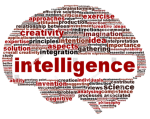Unsupervised learning inspired by early development
The ‘emergence of understanding’ is a major open challenge in the study of cognition and the brain. Vision plays a major (though not exclusive) part in this task. Current computational theories dealing with the acquisition of knowledge about the world through visual perception still cannot adequately cope with this major challenge. These theories have made progress over the past decade in dealing e.g. with object categorization, but cannot deal effectively with natural cognitive concepts, which depend not only on statistical regularities in the sensory input, but also on their significance and meaning to the observer. As a result, current methods are inherently limited in their capacity to acquire in a meaningful way cognitive concepts related to agents in the world, their goals and actions, social interactions and others.
The goal of this research effort is to construct computational modeling of how knowledge of the world emerges from the combination of innate mechanisms and visual experience. The model will be able to develop on its own representations of complex concepts that allow it to understand the world around it, in terms of agents, actions, goals, objects, interactions etc.







